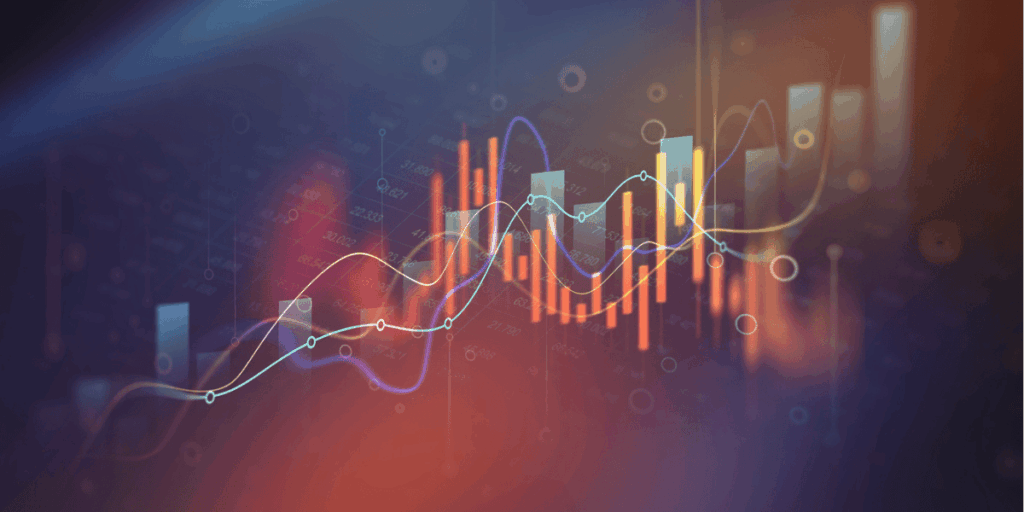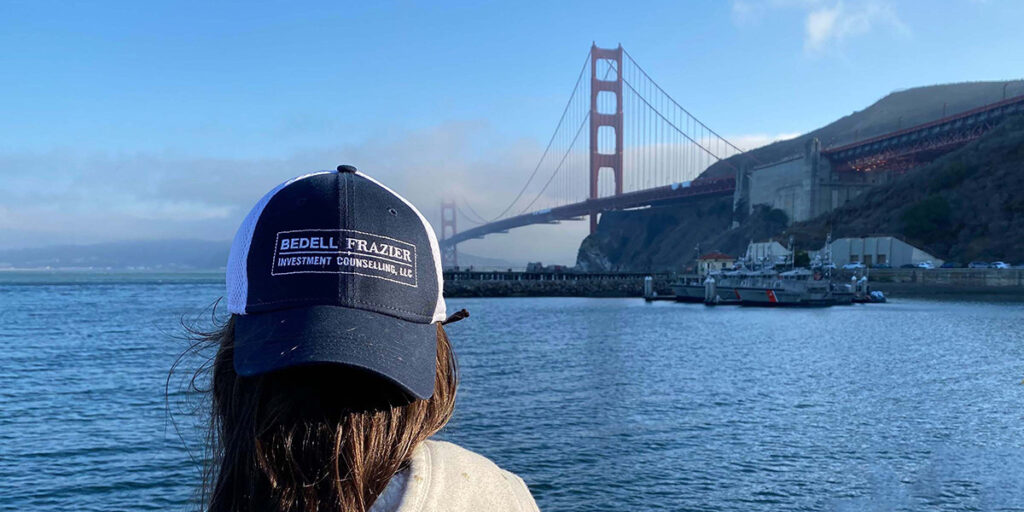For those of you who would prefer to listen:
Wouldn’t you think that Corporate America and America’s Government would have a healthy and collaborative relationship? I suspect it’s a very naïve question to pose, but these 2 giant institutions clearly need each other. There is quite an overlap between their respective stakeholders. Besides, people in the White House and Congress are consumers too. Business leaders and policymakers have shown over time that they can get along. But the relationship is complicated. It’s been that way for a while.
The Business Roundtable met in our nation’s Capital this week. It marked the 50th anniversary for the organization. Founded in 1972, the Roundtable is a group of American CEOs that come together from a broad spectrum of industries to “promote a thriving US Economy and expanded opportunity for all Americans through sound public policy.” Members work closely with policymakers from both political parties in Washington to “advance sound economic policies to spur job creation, expand opportunity and strengthen US competitiveness.” It’s an important group with a noble cause.
The Roundtable took a survey this week. CEOs see a slowdown ahead. In fact, it’s already here. Citing slower hiring, softer sales and decreased capital investment in the near-term, Corporate America is bracing for sluggishness. The CEO Economic Outlook Survey, which measures conditions over the next 6 months, declined 11 points from last quarter to 73. That continued a downward trend which has taken shape over the past year. The index even dipped below its longer-run average of 84 since the recovery in 2020. That said, it remains well above the expansion or contraction threshold of 50. That is the critical line. It last went below 50 early on in Covid. The only other time in the last decade and a half was in the Financial Crisis of 2008. It’s nowhere near that now.
Half of the 142 Business Roundtable CEOs said labor is the largest cost pressure. 15% of the survey said it was material costs, while another 14% said it was supply chain disruptions that hurt the most. Other expensive inputs were energy and regulatory costs. Why does it matter? Companies are reluctant to invest aggressively when growth is slowing. Just 40% of the CEOs surveyed said they plan to hire in the next 6 months. That’s half the response rate from a year ago. Many companies keep laying workers off. Pepsi announced this week it was letting hundreds of workers go. If you recall, Pepsi was a standout company who had pricing power to survive the inflationary environment. Even the best-positioned companies are tightening their belts ahead of 2023.
Costco uncharacteristically missed its earnings estimates when the company reported its Q3 results on Thursday. Costco is certainly a barometer for the American Consumer. Investors were eager to study the results to see whether spending is being diverted from discretionary items back to the necessities. Costco’s miss wasn’t seen as major. But it did suggest that many shoppers are paring back on bigger ticket items. Demand for food and household goods remains strong. Those big screen TVs and other electronic devices? Demand was less strong.
Semiconductors are in pretty much every electronic device we use these days. From computers and smartphones to cars, TVs, appliances and so many healthcare devices; Our lifestyles rely on the speed and functionality that semiconductors provide. They’re considered the brains of the operation. Taking it a step further is the race in this Digital Age to maintain dominance, as quantum computing, machine learning and Artificial Intelligence are considered the challenge and the prize. Both China and the US are in it to win it.
The pandemic and subsequent supply chain strain shined a bright light on American dependence on Chinese manufacturers and Taiwan’s chip production. Lockdowns led to a global shortage of the high-tech chips. Taiwan is home to over 90% of the manufacturing capacity for the world’s most advanced semiconductors. It’s clearly a big deal. Taiwan is a strategic asset, which is why there has been so much tension surrounding China’s seemingly tightening grip.
The Taiwan Semiconductor Company (TSMC) is the largest chip manufacturer in the world, accounting for half the annual production. TSMC announced this week it plans to open a second plant in Arizona. That will increase its investment in the state from $12 Billion to $40 Billion. Taiwan Semi will also be producing more technically advanced chips than originally proposed. This investment by TSMC is one of the largest foreign investments in American history. It’s a direct result of the CHIPS Act passed by Congress earlier in the year, which is designed to relieve our dependence on foreign supplies. It’s an example of Government and the Business World coming together for an important cause and investing for a better tomorrow. It’s merely the beginning and will almost certainly be more costly in the form of Dollars we spend. But the price we pay for increased stability and national security has to be factored in too.
Corporate America and Washington don’t always get along. Big Tech just received a shot over the bow. The Federal Trade Commission (FTC) filed a suit to block Microsoft’s $69 Billion acquisition of videogame developer Activision. The FTC feels that the deal will harm competition. The decision is a clear sign that the FTC will be more aggressive in cracking down on Big Tech. These mega cap companies have grown in size and strength via acquisition. Silicon Valley has been a target for both Democrats and Republicans for a while. This action against Microsoft just moved the dial. Now it’s going to court.
Microsoft says it is confident in its case. Prepare for a drawn-out battle. This is not the first time that Microsoft has been accused of being a monopoly. Remember, Microsoft was in the antitrust spotlight with the landmark Windows case against the DOJ in 1998. Microsoft ultimately agreed to modify some of its business practices. That was many moons ago and a much different Microsoft. But the relationship between Washington and Corporate America has long been a complicated one. It started when Teddy Roosevelt launched his Trust-Busting campaign more than a century ago. Teddy looked out for people over profits. The Business World was no fan of TR. Standard Oil was deemed too big and powerful then. Today’s Titans of Tech have some similar characteristics now.
Another issue you might not consider, which has been quite inflationary and a serious problem in America: Crime. Target said that shoplifting at company stores jumped 50% in just a year. That has resulted in more than $400 Million in losses for the retailer in fiscal 2022. Walmart has rolled out additional plexiglass cases in vulnerable locations. The company has also locked up and/or segmented off higher-priced items. When asked about some laws in local jurisdictions that effectively decriminalize low-level offenses, Walmart CEO Doug McMillon said it could have repercussions if not corrected over time. “Prices will be higher, and/or stores will close. It’s really city by city, location by location.” It’s a serious problem that is showing no signs of fixing itself. The Business community has joined the call for America to be tougher on crime. The cost ultimately falls on consumers and taxpayers.
All of these factors above impact the Market. The major concern still revolves around the Fed. But it’s moved from inflation towards recession. The Market is concerned the Fed is focused on lagging indicators and will make a major policy mistake. The deepening yield curve inversion, the widest in 4 decades, is the most obvious signal here. A week later, it appears the Market overreacted to Chair Powell’s comments. The Fed Chair did not push back against the prospects for easier financial conditions ahead. But he also did not deviate from the Fed’s inflation prioritization and higher-for-longer messaging. The persistently strong Job Market and increased consumer spending have raised concerns about a more aggressive Fed, which have in turn raised more concerns about a policy mistake forcing a hard landing into recession. That’s how things ended the week. The Market has been skittish for all of 2022.
Roller coaster or sideways? Depends on how you look at it. After a super strong November came a December pause. This is the first December since 2011 in which the S&P declined in each of the first 5 sessions. It broke the streak Thursday, but the roller coaster action returned Friday with a decline at the open, gains midday which failed to hold leading to a steep drop to the close. That’s the roller coaster. If you take a step back, the Stock Market hasn’t gone anywhere for 7 months. The S&P headed into the weekend at the same level it was in early May. The Stock Market has basically gone sideways since the Spring, trying to form a defined base. If you stopped looking, you’d think nothing has happened. Well, stuff has happened, and the Market gyrations reflect it.
The Bull-Bear Brawl continues. The Bearish narrative revolves around stubborn inflation, higher for longer Fed rates, increasing recession risk and an earnings slowdown. The Bullish narrative revolves around a Fed rate pause led by peak inflation and a resilient job market that will help with a soft-landing. The negative sentiment and reduced exposure to stocks suggests a lot of the bad is already priced in and a China reopening could be a catalyst for a return to growth. We’re not so sure, though the negativity is undeniable, and seasonality is on the Bulls’ side into year-end.
The biggest difference now compared to the first half of the year: The Bond Market is rallying. Falling yields, which is sniffing out a recession next year, are sending Bond prices higher. That’s new. That’s really important. We’ve been active and aggressive in the Bond Market in H2.
Next week will be the last important and eventful week for the Market for 2022 with another inflation report followed by the final Fed meeting for the year. We’re all over it. We’ve got this.
Have a nice weekend. We’ll be back, dark and early on Monday.
Mike






